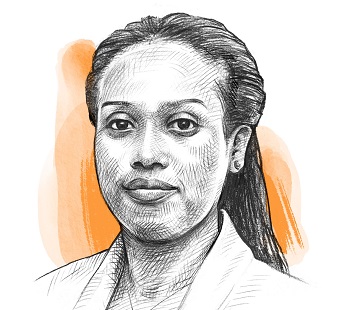Boosting the economy by fostering youth employment in Rwanda
How has vocational training evolved in Rwanda since you began your career in academic leadership and administration more than ten years ago?
The evolution has mainly been in terms of the investment put into it and the education of trainers. Since 2007, Tumba and Kigali technical colleges have been pioneers in advanced technical skills and TVET was already taken seriously.
At first there were technical secondary schools and then it evolved into higher education. TVET became viewed as a pillar to economic and industrial development. Then colleges were established in all provinces, there was interest among the population, the government and the partners that they work with. The investment shows the importance and involvement in the curriculum.
Graduates have been employed by different sectors of the economy and this is ongoing. We have a long way to go but it’s promising. There’s a high perception of TVET’s importance among the public.
What are the biggest hurdles you have faced while developing TVET across the country?
Right now, a challenge is the capacity building of the trainers. In the colleges which are pioneers at a higher level, there are a limited number of qualified teachers compared to the needs and demands. There is a lot of shortterm TVET training abroad in South Korea, Singapore, or Germany.
With the establishment of more TVET colleges, the graduates are hired as instructors. Another challenge is the equipment in labs and workshops which is a big investment. Here, Expertise France provided technical assistance and made sure we reached our goals within a time frame.
What was the collaboration with Expertise France like?
We began collaborating in 2020 and started operating fully in 2021.
The first AFTER project was successful and now we have another round of funding ongoing. Collaboration has been good because we discuss things together, find a common understanding on how things should be—on our side we believe we know our needs and how things should be implemented. Exchange and support are important.
In a partnership you bring together ideas to make it work.
Can you give an example of one of the most positive developments?
With projects the most important thing is to see that you get the results expected. It was the first time we collaborated with France on education, and we hadn’t seen such a high level of investment and collaboration before.
As an academic institution we need to connect with others and through Expertise France we have an MOU with the Paris-Saclay/Cachan technical university and we collaborate in training, capacity building and have some exchange programmes. This was a first connection with a project that began late due to Covid-19, but we managed to achieve what was intended. In Tumba, we have a new building, equipment, our students have a good environment for learning, and we can see that they are capable, and employers are happy with graduates. You can see the skills that you put into the students so that they can serve the industry and the community. I would say it’s a great achievement because you’re building, equipping and training and you can see the results and the impact of that support and the potential that these projects have. A part of this is also enhancing and strengthening the collaboration with industry that wasn’t there before.
What might be helpful with partnerships in the future ?
It has been very positive with Expertise France, and they saw that we are highly motivated and were surprised at how fast things went. Perhaps because they didn’t have an office in Kigali, processes were sometimes slow but in any case we are on a good path and on the same wavelength. I hope that this pace can continue.


